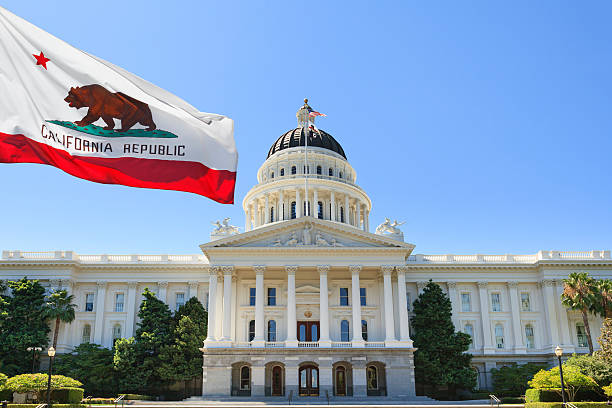By Don A. Wright
The State Water Resource Control Board held a public workshop on its proposed Racial Equity Action Plan on Wednesday, October 19, 2022 at 5:00pm in Sacramento and online with Zoom. This is the last direct public comment session but written comments will still be received until Friday, October 24th at 5:00pm.
At 5:00pm Board Chair Joaquin Esquivel called the workshop to order. Brittani Evans introduced the interpretation process. All the Board members were present and not just a quorum. Evans read the Board’s mission statement. She said the purpose of today’s meeting is to present the REAP, take public comments and suggested revisions.
Angelica Torres showed the old cartoon we’ve all seen of three black males watching the ball game over the fence standing on crates to explain racial equity. There’s never any talk about who worked to earn money to purchase the lumber and materials and labored to assemble the crates. She said there are four dimensions of racism: structural, institutional, interpersonal and individual. She said white people have better advantages. It sounded like stereo typing.
Torres stated the racial equity vision is a California where race doesn’t predict access to quality water resources. In 2016 the Board adopted a human right to water resolution. In 2018 the Government Alliance for Racial Equity & CalEPA joined forces. In 2019 a tribal consultation policy was adopted and in 2020 the racial equity team was established. From September to October of 2021 the racial equity team solicited input and in November the Board adopted the Racial Equity Resolution and instructed staff to form REAP.
Amelia Nishimura, employee of the Board gave an overview of REAP. It had one year to be adopted and Regional Boards are also developing plans. Public workshops were held in July of this year and I noticed they posted a photo I took at the Visalia workshop. Good for them. Nishimura said the workshops revealed everything that supported the team’s goals. She said input from the public, Board staff and the racial equity team has shaped the action plan. I have not seen any of the summaries of the workshop comments. Nishimura went through the structure of the REAP, the three strategic directions and related goals.
Evans went over the REAP timeline. She hopes the REAP can be presented to the Board in January 2023 and the REAP doesn’t not have to be adopted by the Board. Written comments are excepted until October 24th, 2022 at 5:00pm by email, regular mail or hand delivery. REAP is posted online on the State Board’s website.
Esquivel spoke and said often government isn’t the best resource to help but he hopes California will be a leader in addressing systemic racism. He said this is the 50th anniversary of the Clean Water Act and the Civil Rights Act. He said he looks to his fellow board members for their thoughts before getting to public comment.
Board Member Nichole Morgan said thank you for all the work and heavy lifting that went into bringing REAP this far. She said staff heard the concerns and drafted the document for public comment. She said the communities truly felt heard.
Board Member Laurel Firestone said it was great to be here today and excited to hear from the folks. She is proud of how this work was pursued and finding a meaningful way to make change. She is optimistic for the team and leadership to see some changes in outcomes. She had some questions for the seven commenters listed as having signed up to speak. She said she appreciates the stages of the REAP tasks and being frank about what can be done and what is needed with shared expectation. She wants to know more about the stages of the goals being achieved. Goal 1b, developing a RE toolkit is in stage one. She said it is foundational to move the rest of the plan forward. She asked about how long it is expected for timelines to develop as this is a prerequisite to the rest of the plan. That was interesting as the REAP doesn’t have timelines.
Adriana Renteria said there are upcoming phases to the plan that will have metrics developed. She said since this is still in draft form the metrics are waiting until a final draft is finished.
Firestone said Goal 1a has DWR identifying gaps in water rights and SGMA. Every division is tasked with identifying data gaps. She said in terms of this – it is very difficult to understand her questions as she said there were things she didn’t understand. I didn’t understand her question but Renteria, or maybe it was Evans, God bless them, not sure but whoever it was gave an answer that each division and office will have varying needs to identify gaps. Nefertiti Cooley and David Rose were sitting with Renteria, Nishimura and Evans and they spoke.
Cooley said working with GARE board staff is undergoing “training the trainers” and they hope to be certified early next year.
Firestone told the commenters there has been a lot of energy and work going into this and asked the folks commenting to prioritize their comments to help direct limited resources.
Justine Massey was the first public commenter who said it is very important the state acknowledge past injustices. She quoted Irbam X. Kendi saying the opposite of being a racist is to be anti-racism. She feels gathering data to track drinking water data to be a priority.
Kjia Rivers appreciated putting REAP together and thanked them for holding the hearing.
My turn. I thanked the Board for holding the workshop. I said I went to the Visalia workshop and gave a shoutout to Renteria for being so helpful, as she was very much so at that event. Also while at that event I didn’t hear anyone from the public say the problem is racism, they all said the problem is lack of water supplies.
I expressed my concerns about the REAP and they followed what was published in the earlier report of suggested comments. The Board now knows someone is linking Marxist Critical Race Theory to the Racial Equity Action Plan and the reordering of water rights. This is my biggest concern, mixing rights with Marxism, it never ends well.
Another concern is the imprecise language used. The lack of Board action to adopt or deny the REAP is a fast trip into unaccountability. It lets staff set the agenda instead of the board and there is no check for the citizens to challenge policy if it isn’t policy. Without more precise language how will anyone know if anything has been accomplished?
I questioned the racial equity team’s commitment to diversity, inclusion and equity if it wouldn’t allow any of the GSAs or the Farm Bureau or any but the approved NGOs to participate in writing the draft. GARE, the Government Alliance for Racial Equity headquartered at UC Berkeley had more input than the organizations tasked with providing water to the Disadvantaged Communities of Black Indigenous People Of Color. I bet what GARE knows about water wouldn’t wet the pavement in the State Board’s parking lot. But I didn’t say that. I stayed within the civil discourse lines, I think I did anyway. I hope so. I also expressed my concern about using instream flows to protect BIPOC communities while pointing out we are all indigenous and people of color. Limiting diversions of instream flows limits water for DACs.
Vice Chair Dorene D’Adamo told me to look at REAP Goal 1a that includes communities based on socioeconomic conditions and is interested in seeing how this moves forward. Evans also said there is an FAQ online to consult. Board Member Sean Maguire said clarifying the next steps would help as this is a living document. There will be a need to move forward on decisions that will come back to the State Board for approval or denial in a transparent way. D’Adamo suggested the regulatory and planning process will come from the board and not the plan and that needs to be emphasized in the plan. Esquivel said while he disagrees with some of my comments he does see eye to eye on how good Miss Renteria is at outreach and a quality person.
Eric Orellana, Community Water Center thanked the board and said the CWC is in strong support of the REAP. He then said communities of color have been denied equity in drinking water as a result of colonialism. Esquivel thanked him for getting it. Firestone said this is not to create new processes in rule making but to have the ability and information, analysis and training to address racial equity in making decisions.
Sean Bothwell Executive Director California Coastal Keeper said he understands the need for REAP to be a living document. He said the second generation of the document hasn’t been as strong with public input and he hopes that will improve. He said it is difficult to prioritize the goals and he would like to see funding plans. He didn’t see accountability and action funded. He said under Goal 1 more than drinking water and water rights needs to be reviewed such as impaired water ways. Water quality for swimmers in inland water for example. He wants to see how AB 2108 can be integrated into the REAP. He wants more diversity of applicants for the State Board. He also wants all the permits and policies translated into other languages.
Maria Magana was next and she was participating by phone. She wasn’t able to unmute evidently.
Chelsea Haines, ACWA said she acknowledged the hard work of the Board. ACWA plans on submitting comments on clarifying terms. And she requested the REAP be adopted or denied so public input can be consistent with law. She wants REAP to work with the Water Resiliency Plan.
Konrad Fisher was with Water Climate Trust and he said he said water for rivers and fish is also a racial equity and the REAP doesn’t help flows. He said the inflow provisions might harm fish. He then listed many laws and said there doesn’t need to be more studies just enforcement. He said tribal resources are still having water diverted away. He said there was a different Goal 1a in an earlier document that included more flows for tribes. He said justice and equity is different than policy and engaging. He said he holds water rights but they are unethical. I notice he didn’t volunteer to surrender those rights. He also wants more instream flow requirements and suggested starting on a regional north coast plan.
Kasil Willie commented the slides that were supposed to be in English were all in Spanish in the web stream. Other than that she gave her support and said the North Coast Resolution was more tribal specific and she supports that as well.
Horacio Amenzquita called in from the Salinas Valley saying there is much injustice to the poor people, farmworkers. He said there are more than 200 water systems with bad water in Monterey County and all they do is say don’t drink the water but we still get sick from taking showers. He asked for some funding to help the counties and GSAs with getting clean water. He suggested more training for individuals and communities to protect clean water.
Jesus Tutuy Montes of Tulare County said his concern is funding for SGMA doesn’t get siphoned off and wants more transparency in how the money for disadvantaged communities is spent. He wants more accountability from the state.
Marc Gutierrez, I believe is his name, was interpreting for the Spanish speakers. But there were none and there were no other public comments.
Esquivel thanked everyone for taking the time to talk about a difficult topic. He said he was very impressed with how things were expressed this evening. He welcomed the Board to comment further.
Firestone said she’d try to be brief but since there was more than 20-minutes left she said while some of the REAP draft shows goals at the zero completion stage many of them have actually started and are past that. She also said not to wait for the perfect data gap study to start implementation. She said she’s concerned about how things are worded. She cited Goal 1b and c, I think. Bless her heart she doesn’t really speak in complete sentences and getting an accurate written representation of what she says is challenging. She said they shouldn’t put things in the REAP that sends a message the Board won’t follow through. She said they need to flesh out what they can do or believe they can do. She said the plan shows things that frustrate her because it looks like things they won’t do. Some fundamental early actions she wants to see under programs and policies. She said sending the message a gap analysis and toolkit should be top priority. She said don’t wait or the perfect tool kit and an early funding for capacity building may not be accomplished. I think she said that. She said she’s optimistic and scared of doing analysis while making decisions and asking for participation without the resources.
Esquivel said since REAP is a living document the board can give feedback. I believe Rose said staff has gone through racial equity training so that isn’t at zero accomplishment.
Morgan once again thanked staff and the commenters as it is necessary to have feedback to understand where this is going. She said the board is hearing what’s being said and taking it in. There will be times staff can’t take immediate action and there needs to be transparent listening to the communities. She said this work is so important and incorporating what we learn from the past. She said they are hearing communities not traditionally heard from and they are doing better. She cautioned against getting lost in the details and listen to communities not traditionally heard from.
D ‘Adamo said there are several areas she would like to categorize and she wants program staff to review this draft again. There are several provisions that can be taken in many ways and are not clear, such as permitting. She pointed out the language that approved permits don’t perpetuate inequity beyond the term of the permit is problematic. Morgan said she added that language and her reasoning is to not add disproportionally pollute already polluted communities. D’Adamo said she appreciated that but would like the language cleaned up. She was also concerned with the instream flows and much has been done in this area. She said there needs to be an analysis of looking at beneficial uses and it needs to protect beneficial uses and not just BIPOC. She also pointed out she doesn’t believe the State Board and the REAP can really protect BIPOC communities from climate change. She wants the language to be tightened up so there will be less opportunities for miscommunication.
Esquivel said it is important to not set up false expectation but to drive the work.
Maguire said it is important to him to get this plan completed a long time ago. He said this document doesn’t articulate the roles of the Regional Boards. He said they are semi-autonomous and are often the boots on the ground. He said he wants better clarity and understanding of how the toolkits and data gaps can dovetail with the Regional Boards. Esquivel said some of the Regional Board have pretty much copied the State Board resolution and others are adding their own.
At 7:07pm Esquivel thanked everyone for participating. Cooley said she appreciate the need to coordinate with the Regional Boards and those boards’ executive directors have gone through training. And that was that.
To give your comment: 1. By email to: commentletters@waterboards.ca.gov with subject line: “Comment Letter – Racial Equity Action Plan.”
2. By fax transmission to: (916) 341-5620.
3. By mail to: Clerk to the Board, Ms. Jeanine Townsend, State Water
Resources Control Board, P.O. Box 997377, MS 7400,
Sacramento, CA 95899-7377.
4. Hand-delivered to: Clerk to the Board, Ms. Jeanine Townsend, State Water
Resources Control Board, 1001 I Street, 24th Floor, Sacramento, CA 95814.
DISCLAIMER OF RESPONSIBILITY; Waterwrights.net strives to provide its clients with the most complete, up-to-date, and accurate information available. Nevertheless, Waterwrights.net does not serve as a guarantor of the accuracy or completeness of the information provided, and specifically disclaims any and all responsibility for information that is not accurate, up-to-date, or complete. Waterwrights.net’s clients therefore rely on the accuracy, completeness and timeliness of information from Waterwrights.net entirely at their own risk. The opinions expressed in this report are those of the author and do not represent any advertisers or third parties.
ALL RIGHTS RESERVED. Copyright 2022 by www.WaterWrights.net/DAW






























